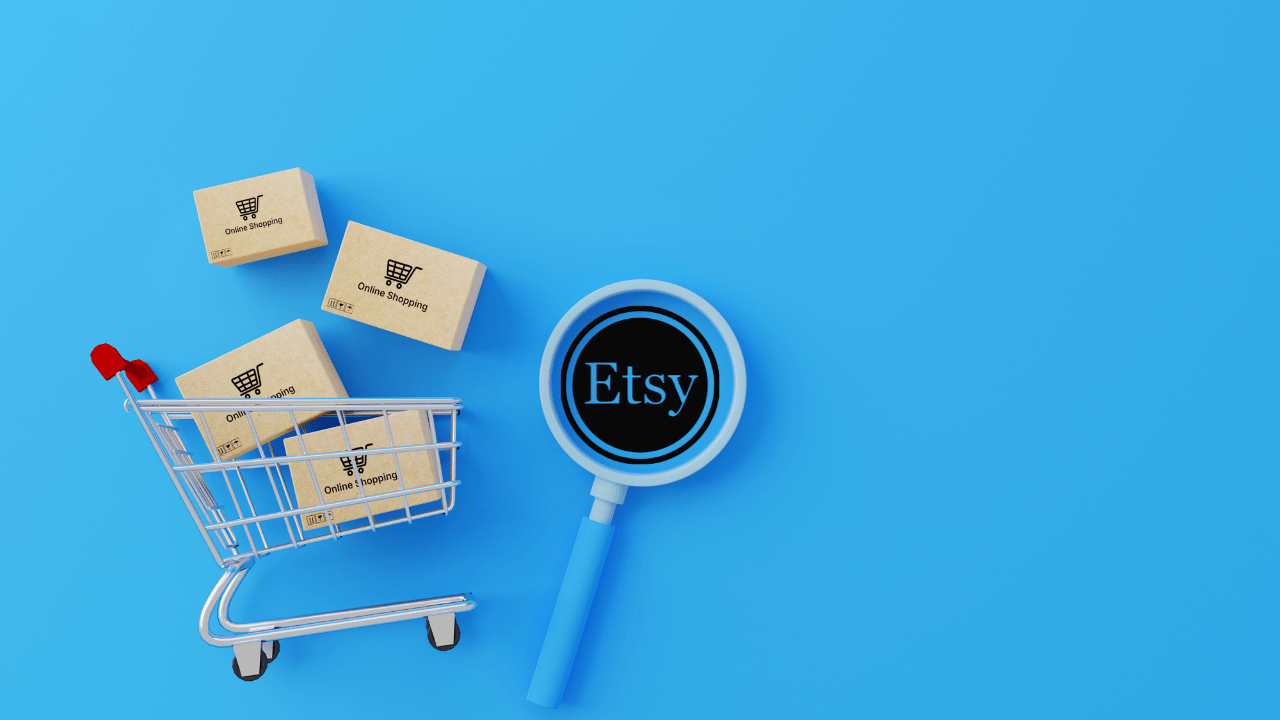If you’re an Etsy seller, finding the best Etsy keywords for your listings is crucial to getting your products in front of the right customers. Etsy’s search engine relies on keywords to match buyer queries with relevant products, meaning that optimizing your listings with the right keywords can significantly boost your visibility, traffic, and sales. In this guide, we’ll dive into how to find and use the best Etsy keywords for your listings, ensuring that your products are seen by the right audience.
Etsy Keywords
Why Etsy Keywords Matter for Your Shop
Etsy’s marketplace is vast, with millions of unique, handmade, and vintage products competing for attention. Using Etsy keywords effectively ensures that your listings are relevant to the specific searches made by potential customers. Keywords help Etsy’s algorithm understand what your products are about and whether they match a buyer’s search intent. By identifying the best Etsy keywords, you’ll increase your chances of ranking higher in search results, leading to more traffic and ultimately, more sales.
How to Find the Best Etsy Keywords for Your Listings
- Use Etsy’s Search Bar for Suggestions One of the simplest ways to find relevant Etsy keywords is by using Etsy’s own search bar. When you start typing in the search bar, Etsy will automatically generate popular search terms related to what you’re typing. These suggestions are based on real user searches, making them an excellent source for high-traffic Etsy keywords.For example, if you sell handmade jewelry, you might start typing “handmade” and see suggestions like “handmade jewelry,” “handmade silver rings,” or “handmade beaded necklaces.” These are potential Etsy keywords you can incorporate into your product listings.
- Analyze Your Competitors’ Listings Another great way to find Etsy keywords is by analyzing the listings of successful competitors in your niche. Look at their product titles, descriptions, and tags to identify the keywords they are targeting. If a competitor’s product is ranking highly for a certain term, it’s likely that keyword is valuable. Tools like Marmalead or EtsyRank can help you further analyze the keywords your competitors are using and their search volume.For example, if you’re selling vintage clothing and notice that a top seller frequently uses “retro fashion” or “vintage 90s clothes,” these may be Etsy keywords worth targeting in your own listings.
- Use Keyword Tools for Etsy There are several tools available that are specifically designed to help Etsy sellers find the best keywords for their listings. Tools like Marmalead, eRank, and Alura provide insights into which Etsy keywords have the highest search volume, lowest competition, and best potential for ranking. These tools can give you a competitive edge by helping you find high-traffic, low-competition keywords to target in your listings.
- Google Keyword Planner Although Etsy has its own internal search engine, Google is another major source of traffic for Etsy sellers. By using Google Keyword Planner, you can identify keywords that people are searching for across the web that might be relevant to your Etsy listings. Google SEO plays a role in bringing organic traffic to your shop, so using keywords that rank well on both Etsy and Google can increase your shop’s visibility.For instance, if you sell wall art, Google Keyword Planner might suggest terms like “boho wall art” or “minimalist prints,” which you can incorporate into your Etsy listings.
How to Optimize Your Etsy Listings with Keywords
Once you’ve identified the best Etsy keywords, it’s time to optimize your listings to ensure maximum visibility.
- Optimize Your Product Titles The product title is one of the most important places to include Etsy keywords. Make sure to place your primary keyword at the beginning of the title, as Etsy’s algorithm gives more weight to the first few words. However, avoid keyword stuffing—your titles should still be readable and make sense to potential buyers.Example: Instead of “Boho Art Print for Living Room, Wall Decor, Minimalist Poster, Large Wall Art,” try “Boho Art Print, Large Minimalist Wall Decor for Living Room, Modern Poster.”
- Utilize Tags Effectively Etsy allows you to add up to 13 tags per listing, and each tag can include a relevant Etsy keyword. Make sure to use all 13 tags and choose a variety of keywords to increase your chances of appearing in different search queries. Use a mix of broad and specific keywords to capture a wider audience.Example: If you’re selling handmade soap, your tags might include “handmade soap,” “organic soap,” “lavender soap,” “natural skincare,” and “handcrafted soap.”
- Incorporate Keywords in Descriptions While Etsy doesn’t directly use the product description for its internal search algorithm, Google does. So, including Etsy keywords naturally in your product descriptions can help you rank in Google search results. Write clear and detailed descriptions that provide information about your product, while organically incorporating your target keywords.Example: “This handmade lavender soap is crafted with organic ingredients, perfect for natural skincare routines. Our artisan soap is gentle, moisturizing, and ideal for all skin types.”
- Update Your Listings Regularly Keeping your listings updated is another key to success. Etsy likes active shops, so regularly updating your listings by tweaking keywords, updating descriptions, or adding new tags can help you maintain or improve your search rankings.
Etsy Keywords to Avoid
While it’s essential to use Etsy keywords to optimize your listings, there are some practices to avoid:
- Keyword Stuffing Keyword stuffing is when you overload your title or description with too many keywords, making it unreadable and spammy. This can negatively affect both your search ranking and the customer’s experience. Always aim for a balance between SEO optimization and readability.
- Using Irrelevant Keywords Don’t use keywords that aren’t relevant to your product just because they have high search volumes. Misleading buyers with irrelevant keywords can lead to poor customer reviews and harm your shop’s reputation.
- Ignoring Long-Tail Keywords Long-tail keywords are more specific phrases that tend to have lower competition. While many sellers focus solely on broad keywords, using long-tail keywords can help you capture more targeted traffic and convert visitors into buyers.Example: Instead of just using “handmade jewelry,” try “handmade sterling silver rings” or “bohemian handmade necklaces.”
Mastering Etsy keywords is a crucial step in growing your Etsy shop and increasing your sales. By researching and implementing the best Etsy keywords in your product listings, you’ll boost your shop’s visibility in search results and attract the right customers. Remember to use tools like Marmalead and eRank to stay ahead of the competition and keep your keywords updated to reflect market trends. With the right keyword strategy, your Etsy shop will be well on its way to success.



